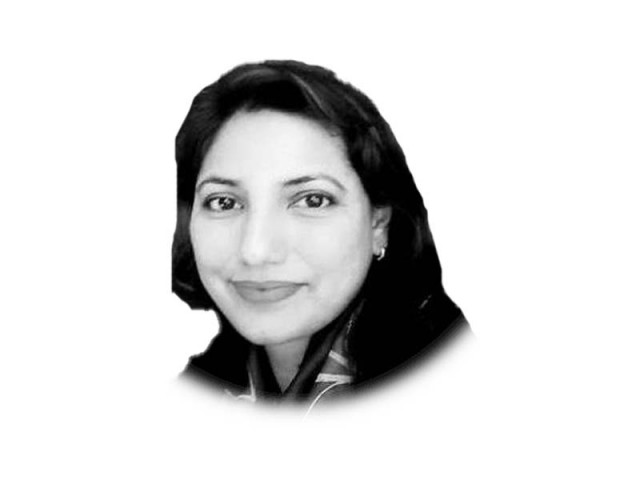The Syria-Pakistan nexus
Sharing videos of children and ‘just praying’ for the people of Syria, will not really help Syria

The writer is a doctoral candidate and CEO of SEPLAA Enterprises. She tweets @AmmaraFMalik
But who is the enemy?
With the constant bombardment of videos of war footage onto our computer screens, we are left with little time to decipher between who is right and who is wrong in this colossal tragedy. The bottom line remains: innocent people are dying and that should be stopped. I am not a supporter of any brutal regime. But the international community is divided over who to support and which modus operandi or propaganda to follow on Syria. Perhaps maintaining a dangerous uncertainty is the goal.
In the ’80s in the Middle East, Syrians were considered a class above the Palestinians (who had to leave their country and take up another country’s citizenship due to the conflict in the region). Despite the fact that the country was by then under the government of Bashar’s father, Hafez al Assad, Syria was considered a prosperous country and its citizens despite limiting constitutional freedoms, were still thriving.
I got the opportunity to meet with some Italian and Iraqi peace activists who worked with Syrian refugees in camps right outside Duhok in northern Iraq in 2014, almost two years into the present Syrian conflict. As academics and social entrepreneurs, my colleague from the US and I were keen to make use of our conference trip there to visit the UN camp and see first-hand some of these people. I had even hoped that I might be able to make some connections and we would be able to continue some work with the refugee women or children upon my return to Pakistan. Unfortunately due to shortage of time, the camp trip could not materialise. Four days after we left, Iraq was invaded by the Islamic State.
Fast forward to 2017 and I came across another opportunity to be introduced to a social entrepreneur from Turkey who is working directly with Syrian refugees in Istanbul. The model is very interesting because the ‘Kiron Open Higher Education’ provides opportunities to Syrian refugees in Istanbul to start university education, despite not having papers and to acquire relevant documents over a span of two years, to later have credits transferred to a partner European university after one to two years. Keeping my history of interest in the region in mind, I jumped at the opportunity to be able to do something with Syrian refugees too. My connection turned out to be an excellent point of contact in Turkey where I see a lot of opportunities for joint work. I am not sure, if we will be able to jointly do any work for Syrian refugees but I see that we have taken a few important and promising steps in that direction.
Sharing videos of children and ‘just praying’ for the people of Syria, will not really help Syria but will certainly fuel more propaganda. As global citizens, we should find ways to work together. Abdus Sattar Edhi, the man who created the ambulance fleet in Pakistan and rose to international recognition as a selfless man and a beacon of hope for many, would have endorsed this. I am reminded of what Edhi Sahib said, ‘I am not concerned with your politics. My job is to pick the bodies caused by your war.’
In this day and age of technology, picking up the dead can also mean, bringing battered souls to life. Perhaps an international social enterprise network will be able to lay the foundations of such work where Pakistanis will actually be able to contribute to the well-being of Syrian refugees.
Published in The Express Tribune, April 11th, 2017.
Like Opinion & Editorial on Facebook, follow @ETOpEd on Twitter to receive all updates on all our daily pieces.















COMMENTS
Comments are moderated and generally will be posted if they are on-topic and not abusive.
For more information, please see our Comments FAQ